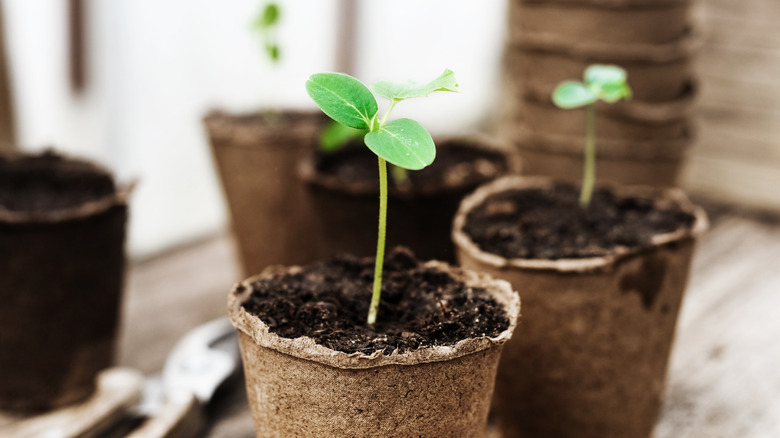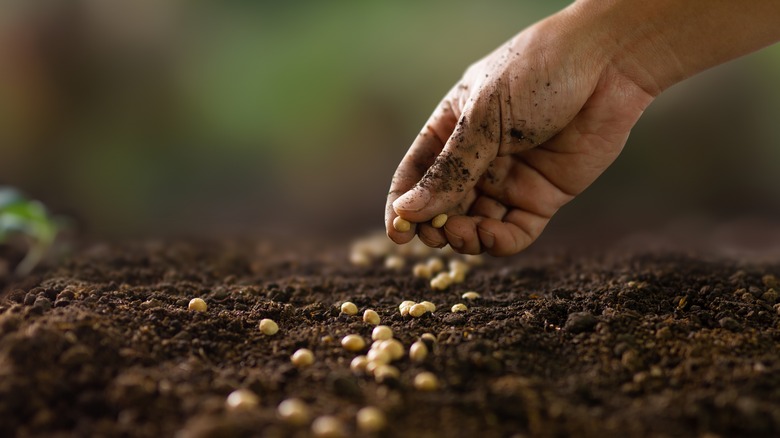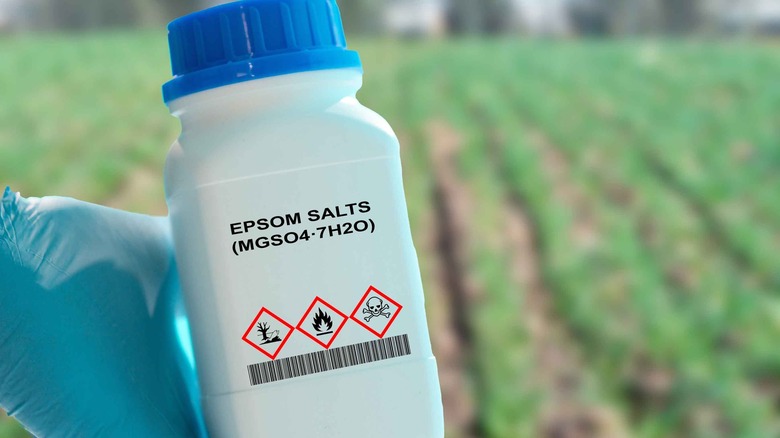Is Epsom Salt The Key To Germinating Seeds?
Epsom salt, or magnesium sulfate, has a long history of use in gardens to supplement nutrients that the soil may be lacking. It's often marketed as a versatile garden aid, with claims it can boost seed germination, improve plant growth, and even keep deer from munching on your garden. But is there any scientific evidence supporting these benefits, especially for germination? Let's dig into what Epsom salt is and what it can do for your garden, separating the myths from the facts.
Magnesium is a vital nutrient for plants. It plays a key role in photosynthesis and overall plant health. In magnesium-deficient soils, adding a magnesium source like Epsom salt can theoretically improve plant growth. Magnesium deficiencies often occur in acidic, sandy, or highly leached soils, where essential minerals can be washed away over time. In these cases, supplementing with magnesium can help plants grow stronger and healthier.
However, when it comes to germinating seeds, things get a bit murkier. Seeds generally contain enough stored nutrients, including magnesium, to start the growth process without needing an external nutrient boost. According to research by Dr. Linda Chalker-Scott of Washington State University, there isn't sufficient scientific data to back up claims that Epsom salt enhances seed germination. Seeds can typically germinate using only water, as they have the necessary nutrient reserves to kick-start their initial growth.
The science behind Epsom salt and seed germination
Epsom salt is a highly soluble source of magnesium, which means it can be quickly taken up by plants in soil that lacks this nutrient. In magnesium-deficient conditions, such as those often found in heavily cultivated crops, Epsom salt has been shown to reduce symptoms of deficiency like chlorosis (leaf yellowing) and poor growth. For many plants, studies indicate that sufficient magnesium is essential for healthy seed yield, quality, and successful germination. This has led some gardeners to assume that Epsom salt might benefit seed germination in similar ways.
But the problem with this idea is that magnesium does not necessarily enhance the germination process itself. Research has found no conclusive evidence that adding Epsom salt helps seeds germinate faster or more successfully. There are many plants that don't need Epsom salts. Most seeds simply don't require extra magnesium at the germination stage, as they rely on the nutrients stored within the seed itself. In fact, applying Epsom salt unnecessarily could lead to nutrient imbalances or even leach harmful minerals into groundwater without delivering any measurable benefit for germination.
So, is Epsom salt worth adding to your garden?
While Epsom salt can be a valuable resource for plants suffering from magnesium deficiency, its benefits are more applicable to established plants than to seeds. For gardeners dealing with magnesium-poor soils, adding Epsom salt may help prevent deficiencies and improve plant health overall. Still, it's important to use it with caution. Excessive magnesium can accumulate in the topsoil, potentially leading to nutrient imbalances and even contributing to pollution when washed away.
If your soil has been tested and found to be deficient in magnesium, adding Epsom salt may indeed provide a boost to certain crops or plants. However, if you're just trying to germinate seeds, you likely won't see any benefit from the added magnesium. The idea that Epsom salt is a key to successful germination lacks scientific support, and many of its advertised benefits are rooted more in tradition and anecdotal evidence than in reliable research. So, while Epsom salt has its place in gardening, particularly for treating magnesium-deficient soils, it isn't the secret to germinating seeds.


